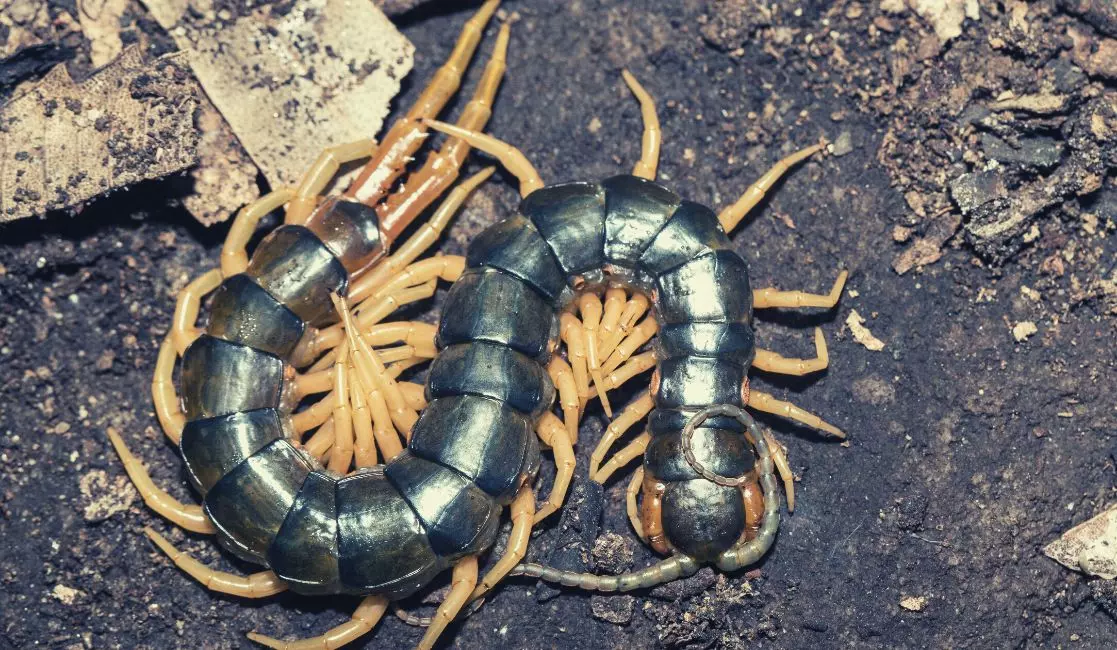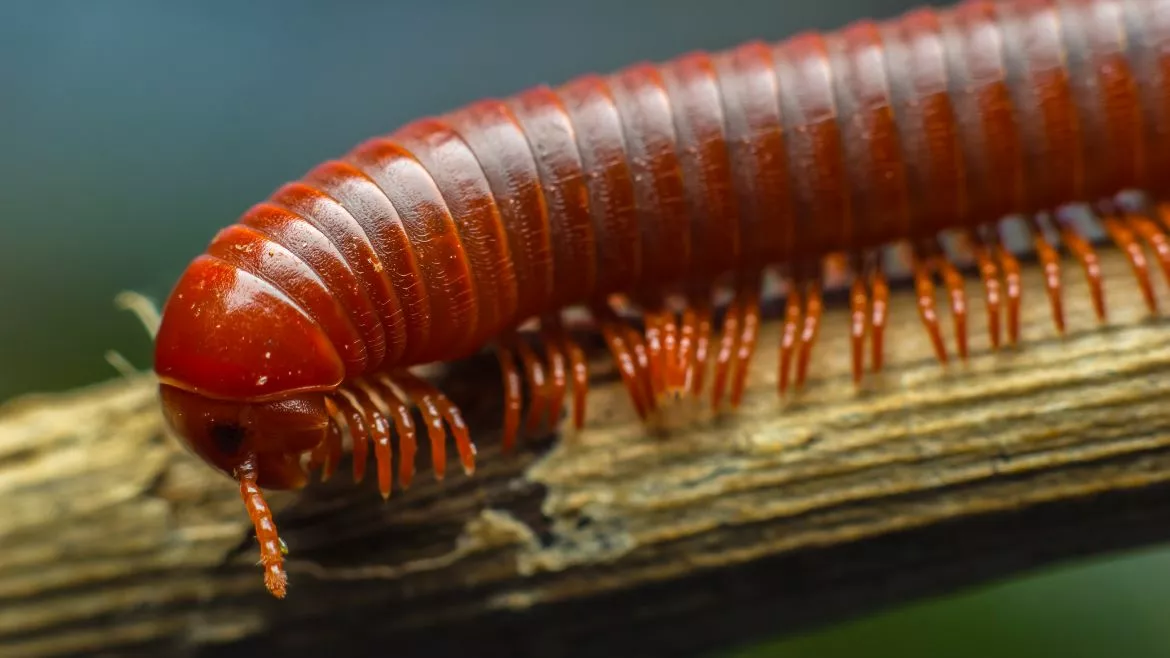Centipedes, Millipedes extermination & Removal in Cobourg
Remember that prevention is key to keeping centipedes and millipedes away. Maintaining a clean and dry environment, sealing entry points, and reducing their food sources can help prevent future infestations. But if all these have not fully prevent infestation, contact Zolo Pest Control ASAP!
Centipedes and Millipedes extermination
If you're dealing with a centipede or millipede infestation and looking for ways to exterminate them, here are some methods you can consider:
- Identify the source: Try to locate the areas where centipedes and millipedes are entering your home. Check for cracks in walls, gaps around doors and windows, or any other potential entry points. Seal these areas to prevent further entry.
- Reduce moisture: Centipedes and millipedes are attracted to damp environments. Make sure to address any moisture issues in your home, such as fixing leaky pipes, improving ventilation, and using dehumidifiers in areas prone to high humidity.
- Remove their food sources: Centipedes and millipedes feed on other insects and decaying organic matter. Eliminate their food sources by keeping your home clean and free from debris. Regularly vacuum and sweep floors, especially in basements, attics, and crawl spaces.
- Natural repellents: Some natural substances act as deterrents for centipedes and millipedes. Sprinkle diatomaceous earth or boric acid powder in areas where they are present. These substances can help dehydrate and kill them. Essential oils like peppermint, tea tree, or eucalyptus can also be used as deterrents.
- Chemical control: If the infestation is severe or other methods have not been effective, you may consider using chemical pesticides. However, exercise caution when using them and follow the instructions on the product label. It's best to consult with a professional exterminator who can recommend and apply appropriate chemical treatments.
- Seek professional help: If the infestation persists or you're unsure about how to handle it, contacting a pest control professional is advisable. They have the expertise and experience to identify the specific type of centipedes or millipedes and provide effective extermination methods.

Controlling Centipedes
Controlling centipedes can be challenging, but there are several steps you can take to minimize their presence in your living space. Here are some effective methods for controlling centipedes:
- Reduce moisture: Centipedes are attracted to damp environments, so it's crucial to address any moisture issues in your home. Fix leaky pipes, improve ventilation, and use dehumidifiers in damp areas like basements and bathrooms.
- Seal entry points: Centipedes can enter your home through small cracks and gaps. Inspect the exterior of your house and seal any openings, including gaps around windows, doors, and utility openings. Install door sweeps to prevent them from crawling under doors.
- Eliminate hiding spots: Reduce clutter in your home, especially in basements, garages, and storage areas. Centipedes like to hide in dark, secluded areas, so decluttering will make your home less attractive to them.
- Remove food sources: Centipedes feed on other insects, so reducing the number of insects in your home can help control their population. Keep your house clean and free of crumbs, and promptly fix any plumbing leaks to avoid attracting other pests.
- Use natural repellents: Some natural substances are known to repel centipedes. Sprinkle diatomaceous earth or boric acid in areas where centipedes are often seen. These substances can be harmful to centipedes but are generally safe for humans and pets.
- Sticky traps: Place sticky traps in areas where centipedes are likely to travel, such as along baseboards, in corners, or near entry points. The traps will catch and immobilize the centipedes, making it easier to remove them.
- Professional pest control: If you have a severe centipede infestation that you can't control on your own, it's advisable to seek professional pest control services from Zolo Pest Control Inc. We have the expertise and tools to effectively eliminate centipedes and prevent future infestations.
Centipede Bites
Centipede bites can be painful and potentially dangerous, although most species of centipedes are not venomous enough to cause severe harm to humans. However, there are some exceptions, such as the giant desert centipede (Scolopendra heros) found in North America, which has a more potent venom. The symptoms and severity of a centipede bite can vary depending on factors like the species of centipede, the individual's sensitivity to the venom, and the location of the bite. Symptoms can be intense pain, swelling, redness and inflammation, itching and irritation, numbness or tingling near the bite.area
Remember, centipedes play a beneficial role in ecosystems by feeding on other pests. If they are not causing any harm or posing a threat, it might be best to coexist with them and focus on minimizing their numbers rather than completely eliminating them.

Controlling Millipedes
If you're looking for ways to control millipedes in and around your home, here are some strategies you can try:
- Remove their habitat: Millipedes thrive in damp and dark environments. Reduce moisture levels by fixing leaky pipes, improving drainage, and ensuring proper ventilation in your home. Remove leaf litter, mulch, and other organic debris from around your property, as these provide hiding places for millipedes.
- Seal entry points: Inspect your home for any gaps, cracks, or openings where millipedes can enter. Seal these entry points with caulk or weatherstripping to prevent their access.
- Reduce outdoor lighting: Millipedes are attracted to light sources, so consider using less outdoor lighting or changing to yellow or sodium vapor bulbs that are less attractive to them.
- Natural barriers:Create a barrier around your home using diatomaceous earth, crushed eggshells, or copper strips. These substances can deter millipedes from crossing the barrier due to their abrasive or electrochemical properties.
- Physical removal: If you spot millipedes inside your home, you can manually remove them using a vacuum cleaner or by hand (using gloves). Dispose of them properly to prevent them from returning.
- Insecticides: Chemical control should be a last resort. If you decide to use insecticides, opt for products specifically labeled for millipede control. Apply the insecticide according to the instructions, focusing on areas where millipedes are present or gaining entry.
- Professional pest control: If millipede infestation persists or becomes unmanageable, consider contacting a professional pest control service like Zolo Pest Control Inc. They have the expertise and resources to handle the situation effectively.
Remember, millipedes are generally harmless and play a beneficial role in breaking down organic matter. It's only when their populations become excessive or they enter your home in large numbers that control measures may be necessary.
Call ZOLO for Help!
Call Zolo Pest Control Inc if you are experiencing a millpede or centipede infestation. Our trained and licensed pest technicians will be able to solve your problem quickly and effectively because they are knowledgeable about pests and effective treatments.






